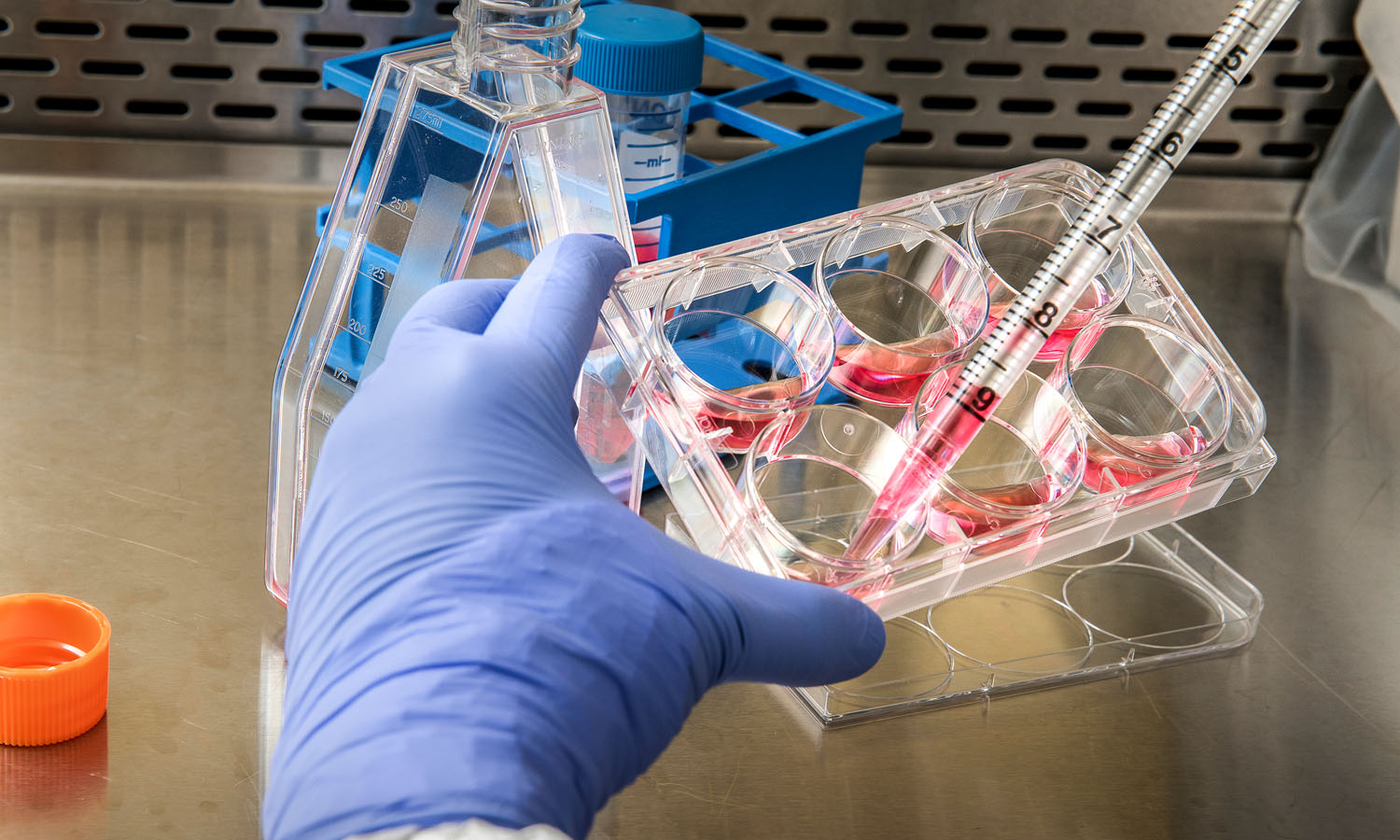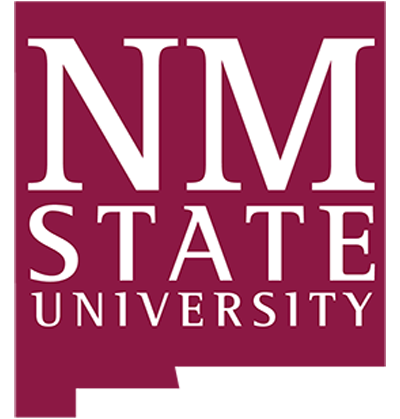Faculty Funding Opportunities
NM-INBRE is a competitive career and science development program that emphasizes the maturation of research projects into comprehensive research programs. Eligible faculty have the opportunity to compete for research project funding through NM-INBRE’s Developmental Research Project Program (DRPP) to enhance their scientific advancement, professional growth, student mentoring, and collaborations. NM-INBRE focuses on faculty progress toward establishing independent research programs in order to sustain research activities beyond the INBRE award. The NM-INBRE DRPP therefore expects faculty investigators to take active steps toward securing external funding, and encourages investigators to submit proposals to the NIH and other federal agencies.

NM-INBRE Research Goals
NM-INBRE is a faculty and student‐development program that emphasizes the maturation of research projects into comprehensive research programs providing opportunities for scientific advancement, professional growth, student development, and collaboration across network institutions and beyond. NM-INBRE stresses progress toward establishing independent research programs in order to sustain research activities beyond the NM-INBRE award. The NM-INBRE therefore expects faculty investigators to take active steps toward securing external funding and encourages investigators to submit proposals to the NIH and other federal agencies.
DRPP Thematic Focus Areas
The NM-INBRE invites basic, clinical, translational, and/or community‐based participatory research projects that address important biomedical problems, health disparities, and fit within one or more of the following NM-INBRE research thematic focus areas:
- Structure and Function of Biomolecules
- Aims to understand the molecular and structural mechanisms underlying the functions of proteins that mediate critical cellular processes
- Pathogens
- Builds on existing knowledge in infectious disease, immunology, and inflammation, strengthening a developing biodefense community
- Cell and Organism
- Examines complex physiological processes, such as hypertension, memory, cell division and oogenesis
- Population-level and Community health research
- Research involving population-level studies. Especially, includes projects that aim to eliminate health disparities affecting underserved populations, particularly in native communities in New Mexico. Includes research involving investigators and community members using true community‐based participatory research methods. Also includes community health education.
Full Research Projects
Goal: Faculty Development to Independent Investgator
Funding level: $50,000 ‐ $75,000 annual direct costs
Funding duration: depends on application type and justification for multiple-year project, typically 3-5 years
Characteristics of Full DRPP Projects:
- Full‐term study that fits within NM-INBRE thematic research areas
- Can be independent or collaborative
- Aims to develop results for publication and NIH R‐type grant proposal
- Annual renewal of funds dependent on progress toward publications and grants
- Priority will be given to projects that include bioinformatics tools
- Must select a mentor with a track record of independent research funding
- Research Enhancement Plan must address plans for faculty career development and how the investigator will work with chosen mentor
- Must address plans for student involvement, development, and training
Eligibility for Full DRPP Projects:
- Any individual or collaborative team with the skills, knowledge, and resources necessary to carry out the proposed research is invited to work with his/her organization to develop an application for support.
- Individuals from underrepresented racial and ethnic groups, as well as individuals with disabilities, are always encouraged to apply for NM-INBRE support. Typically, the PI of a NM-INBRE application possesses a Ph.D. or M.D./Ph.D. degree. S/he must also have a full‐time faculty appointment at the applicant institution and for those applying for Full projects, eligibility to apply for a NIH R‐type grants (R01, R03, R15, R21, etc.) is required. Faculty appointments may include tenure, clinical, and research‐track positions. Preference for Full or Focus projects will be given to new investigators who have not yet competed successfully for an NIH research grant
- Full research project investigators will be expected to devote at least 50 percent of their professional effort (equivalent to 6.0 person months) to research and career development activities. Institutions must provide release time for project investigators, thus permitting a significant time commitment to the research enterprise. To allow flexibility to investigators who cannot devote 6.0 consecutive months throughout the year, the effort can be distributed over the year to achieve a total of 6 person months (for example, 3.0 person months during academic year and 3.0 person months in summer (up to three months) to account for a yearly 6.0 person months’ effort)
- Individuals who have completed an NM-INBRE-funded FULL research project or who have achieved independent investigator status are not eligible.
Expectations for Full DRPP Project Investigators:
- Respond to NM-INBRE proposal review critiques
- Spend 50% of full-time effort on research and professional development
- Develop and enable a plan to be mentored (formal mentor is required but not monitored)
- Give at least one research presentation at a network institution per year
- Submit at least one external grant application per year in years 3-5
Focus Research Projects
Goal: Faculty development to independent investigator and/or development of research experiences for students
Funding level: $5,000 ‐ $25,000 annual direct costs
Funding duration: may request multiple years, depending on application type and justification for multiple-year project.
Characteristics of Focus DRPP Projects:
- Focused study that fits within one or more NM-INBRE thematic research areas
- Can be independent or collaborative
- Aims to develop results for publication and NIH R‐type grant proposal
- Can be used to transition to a Full NM-INBRE-funded Research Project
- Priority will be given to projects that include bioinformatics tools
- Must select a mentor with a track record of independent research funding
- Research Enhancement Plan must address plans for faculty career development and how the investigator will work with chosen mentor
- Must address plans for student involvement, development, and training, as appropriate to aims
Expectations for Focus DRPP Project Investigators:
- Respond to NM-INBRE proposal review critiques
- Ensure commitment for adequate effort to complete the proposed research
- Develop and enable a plan to be mentored (formal mentor is required but not monitored)
- Submit at least one external grant application per cycle
We are currently not accepting applications for full or focused research projects. However we will post updates here once applications do open up again.
Collaborative Proposals
NM-INBRE seeks to foster collaborations that develop cross-institutional research relationships within the Network. Proposals that link formally to another proposal or existing project within the NM-INBRE network are especially encouraged. Proposals from research-intensive institutions involving formal collaboration with proposals from an NM-INBRE PUI will be prioritized.
Collaborative research must have one investigator from an NM-INBRE Institution and can include collaborating investigators from the following:
- NM-INBRE network PUI institutions
- NM-INBRE network RI institutions
- The National Center for Genome Resources (NCGR)
- Institutions of the Regional Alliance of INBRE Networks (RAIN): ID, MT, NV, and WY
- Mountain West Research Consortium (MWRC): AK, HI, ID, MT, NV, NM, WY
Other DRPP Expectations
- Foster student participation and employ good mentorship and training practices
- Contribute to NM-INBRE network activities
- Publish in peer-reviewed journals and acknowledge INBRE funding and resources
- Present at scientific meetings
- Seek and utilize shared core facilities and resources
- Manage budgets (spend $$ each year)
- Comply with policies: federal, agency, institutional
- Make and meet professional development goals
